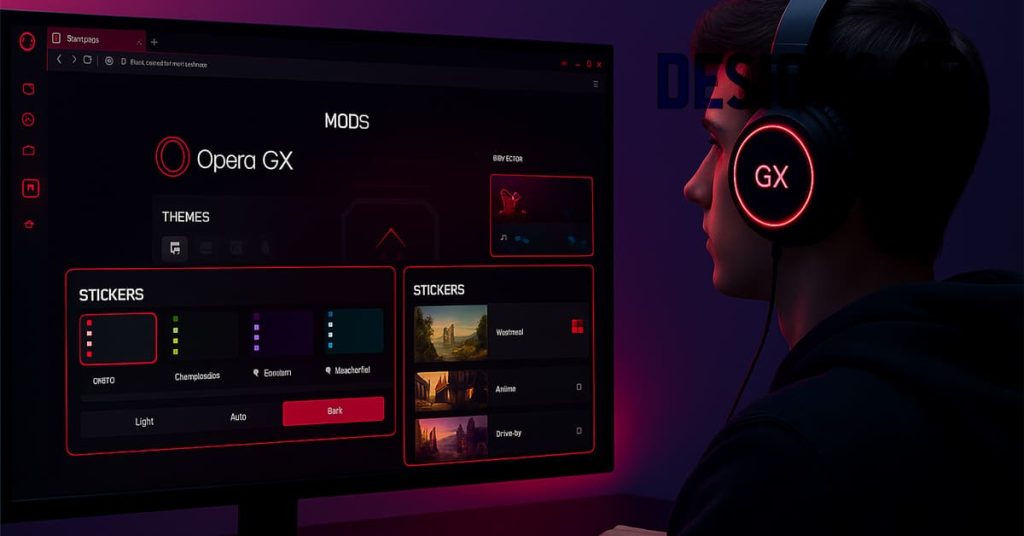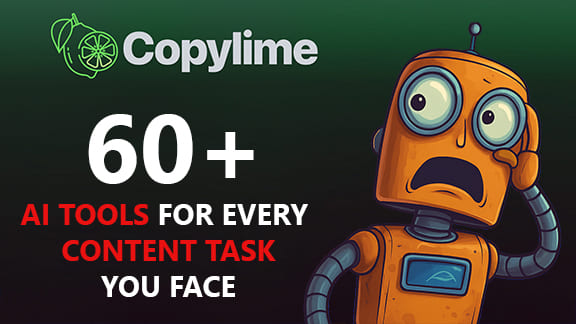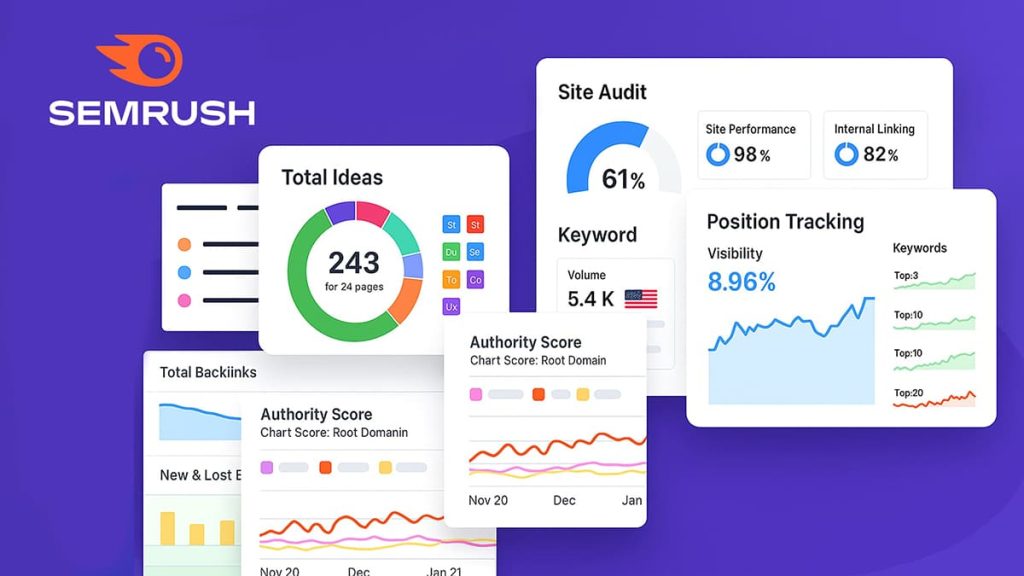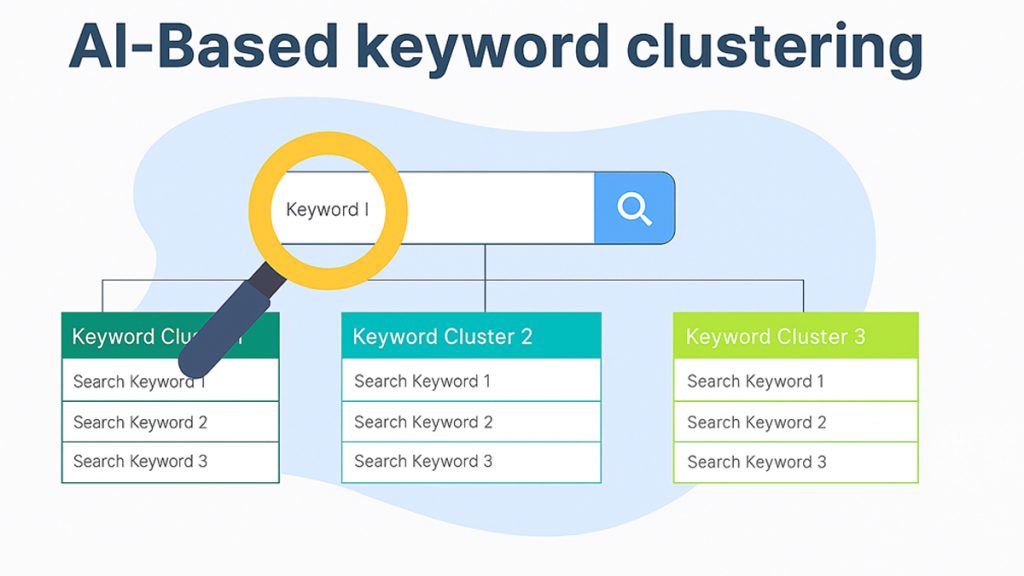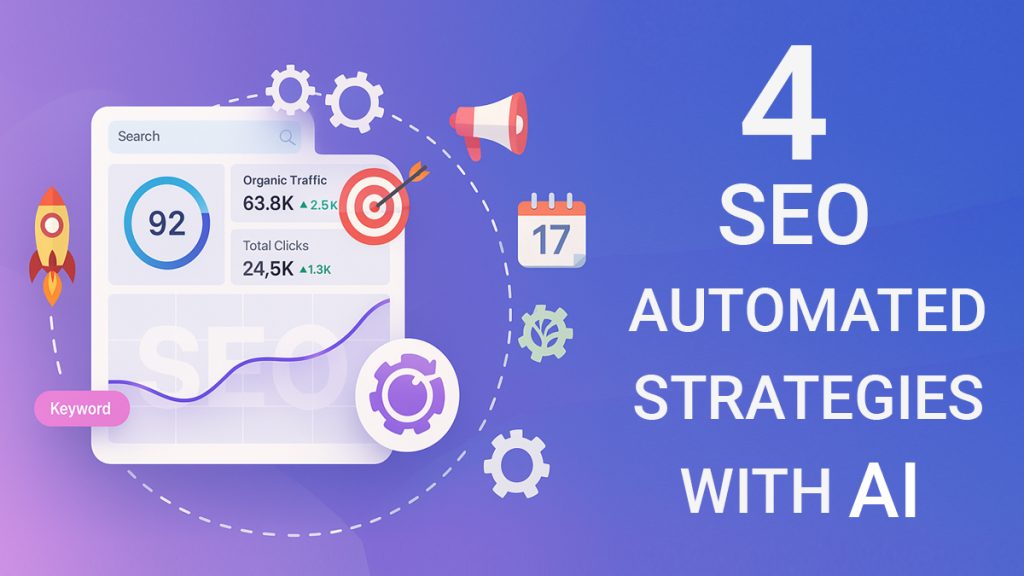I used to dread opening those massive keyword spreadsheets hundreds of terms, all jumbled, no clear direction. What was I supposed to do with “AI content planning,” “SEO content strategy tools,” and “automated keyword mapping”? At first glance, they felt related… but how related? And should they all go on one page? That’s where keyword clustering comes in and once I discovered it, my entire SEO workflow changed.
Keyword clustering helps you group related terms together so you can build smarter, more strategic content. It’s not just about saving time (though it does that, too). It’s about thinking the way search engines and users do in topics, not isolated keywords.
And when you bring AI into the picture? Everything gets faster, cleaner, and more scalable. In this guide, I’ll break down how it works, best practices that actually hold up, and the tools I trust to do it right in 2025.
What is keyword clustering and why it matters
I used to think keyword research was all about picking one perfect term and building a page around it. You know, the classic “one keyword, one page” mindset. But here’s the catch: search behavior doesn’t work that way anymore and neither does Google.
Keyword clustering flips that old-school method on its head. Instead of isolating terms, it groups them based on shared meaning and search intent. So if “best noise-canceling headphones,” “top headphones for travel,” and “over-ear headphones for flights” all trigger similar search results, they belong together. One well-structured article can rank for all of them without trying to awkwardly stuff in every variation.
And the payoff? It’s massive:
- You avoid keyword cannibalization, where multiple pages fight to rank for the same term.
- Your content gains topical depth, because you’re covering a broader angle in one place.
- And most importantly, you align with how users actually search naturally, and with nuance.
Let me give you a real-world example. When I planned a blog series on AI-powered productivity tools, I started with individual keyword ideas. But by clustering “AI content calendar,” “automated content planner,” and “AI tools for marketing schedules,” I realized they all pointed toward one high-value theme. That became a core article and funny enough, it later linked organically to my piece on time-saving SEO automations with AI (yes, clustering helped there too).
So yeah, keyword clustering isn’t just a tactic. It’s a mindset shift and one that’ll make your content strategy smarter, faster, and way more effective.
How AI makes keyword clustering easier and smarter
I used to spend hours manually sorting keywords, unsure which ones truly belonged together. It felt like solving a puzzle without enough pieces — until AI entered the picture.
Modern AI tools don’t just speed up clustering, they make it far smarter. By analyzing real-time SERP data, they identify which terms share ranking URLs — a clear sign those keywords can live together. Tools like Cluster AI and Semrush Keyword Manager do this brilliantly.
Even better, language models like GPT go beyond surface-level similarity. They detect semantic meaning — grouping terms like “affordable CRM software” and “budget customer relationship tools” because the intent aligns.
Some platforms even take it further: clustering by search intent (informational vs. transactional), generating content maps, and suggesting structure — blog, hub, or subfolder — based on topic depth. What used to take hours now happens in just a few clicks.
Honestly, AI doesn’t just automate the grunt work. It gives you strategic clarity. And when I combined these techniques with broader automation workflows (like in my other article SEO strategies article powered by AI ), it saved me hours every week no exaggeration.
Best practices for effective AI keyword clustering
There’s a bit of a myth that AI handles everything for you once you upload a keyword list. Not quite. I’ve learned that the real value comes when you work with AI not just delegate to it blindly. Here’s how I approach it after years of testing and refining.
First, feed the machine clean data. Tools like Ubersuggest, Semrush, or Ahrefs give you solid keyword sets, but they’re not perfect out of the gate. I usually run a quick cleanup: remove duplicates, filter out irrelevant terms, and get rid of ultra-low volume or off-topic entries. Think of it like prepping ingredients before cooking bad inputs equal messy outputs.
Next, let AI do the heavy lifting but stay in the loop. I rely on clustering tools like Keyword Insights or Scalenut to group keywords by SERP or semantic similarity. The speed and structure they offer are phenomenal. But I always review the groups manually. Sometimes, two clusters are too close and should merge. Other times, a cluster looks bloated and needs to be split. Trust your instincts.
Now, don’t fall into the over-clustering trap. This one’s tricky. Some tools create clusters so narrow they end up with four or five keywords all variants of the same thing. That leads to overly fragmented content and and diluted topical authority. Instead, I aim for clusters that strike a balance: focused enough to make sense, but broad enough to support a full article.
Finally, prioritize like a strategist, not a robot. AI might tell you what keywords are grouped, but it won’t tell you which ones matter most to your business. That’s your job. I score clusters based on search intent and how they align with business goals. For example, if a cluster targets high-converting transactional queries, it jumps to the top of my content roadmap. Informational clusters? Still valuable, but maybe part of a broader SEO support system.
Best AI tools for keyword clustering in 2025
Let’s be honest there’s no shortage of keyword tools out there. But when it comes to AI-powered clustering, a few stand out by offering real value, not just hype. I’ve tested dozens, and these five tools keep showing up in my workflow. Whether you’re a solo blogger or running SEO at scale, there’s something here for you.
WriterZen: for smart topic discovery and structured content planning
If you’re starting from scratch and need a complete topic roadmap, WriterZen is a solid pick. It’s not just a clustering tool it helps uncover untapped content gaps and groups keywords into topic clusters using both SERP and NLP analysis. Their “Golden Keyword” feature filters terms by difficulty and intent, which I found incredibly useful when balancing volume with competitiveness.
- Key features: SERP + NLP clustering, topic discovery, built-in keyword metrics
- Best for: Bloggers and small teams building structured content hubs from the ground up
RyRob AI: for free, fast keyword grouping with minimal effort
RyRob’s free keyword cluster tool is about as simple as it gets and that’s a good thing. You pop in a primary keyword, and it returns clusters almost instantly. No login, no fuss. The results aren’t as refined as premium tools, but if you want a quick-and-dirty starting point, this one’s hard to beat.
- Key features: AI clustering, free access, beginner-friendly
- Best for: New bloggers or freelancers experimenting with content ideas
Semrush AI: for precise clustering tied to real SERP data
I use Semrush’s Keyword Manager when I need clustering that closely mirrors how Google interprets keyword relationships. It pulls live SERP data to group keywords by overlapping ranking URLs which means the clusters are based on what actually performs. You can also tweak clustering settings and export directly into editorial workflows.
- Key features: SERP-based clustering, rank overlap filters, full SEO suite integration
- Best for: Agencies, SEO strategists, and power users already in the Semrush ecosystem
Scalenut: for Cruise Mode content automation at scale
Scalenut does more than clustering. With Cruise Mode, you enter a seed keyword, and it auto-generates a content brief with keyword clusters, structure suggestions, and AI-written sections. It’s fast and surprisingly accurate. I’ve used it to spin up drafts for cluster articles in minutes especially helpful when you’re juggling multiple content calendars.
- Key features: AI content briefs, Cruise Mode automation, intent-based keyword grouping
- Best for: Busy content marketers and SEO teams managing multiple campaigns
Surfer SEO: for clustering integrated with on-page optimization
Surfer’s strength is in optimization, but its Content Planner includes a handy clustering feature that groups terms by SERP similarity and assigns them to specific intent types. While it’s not the most flexible cluster tool, the real-time optimization insights during writing make it a practical all-in-one.
- Key features: Content Planner, SERP similarity clustering, on-page guidance
- Best for: Content creators who want clustering and optimization under one roof
| Tool | Key features | Best for |
|---|---|---|
| WriterZen | SERP + NLP clustering, topic discovery, keyword metrics | Bloggers, small teams building content hubs |
| RyRob AI | AI clustering, free access, beginner-friendly | New bloggers, freelancers |
| Semrush AI | SERP-based clustering, SEO suite integration | Agencies, SEO strategists |
| Scalenut | AI content briefs, Cruise Mode automation | Content marketers managing multiple campaigns |
| Surfer SEO | Content Planner, SERP similarity, on-page optimization | Creators wanting clustering + optimization |
Choosing the right tool depends on your workflow. But if you’re serious about scaling SEO efficiently, these platforms offer a head start and the good news is, most of them play nicely with broader automation strategies you might already be using.
Keyword clustering isn’t just a technical step in SEO it’s a strategic advantage. And when you pair it with the right AI tools, you unlock a system that’s faster, more intuitive, and way easier to scale. I’ve seen it transform scattered keyword lists into clear content roadmaps, not to mention save hours of manual sorting every week.
Already using keyword clustering in your process ? Or testing one of these tools? Let me know how it’s going in the comment, I’d love to hear what’s working (and what’s not).


